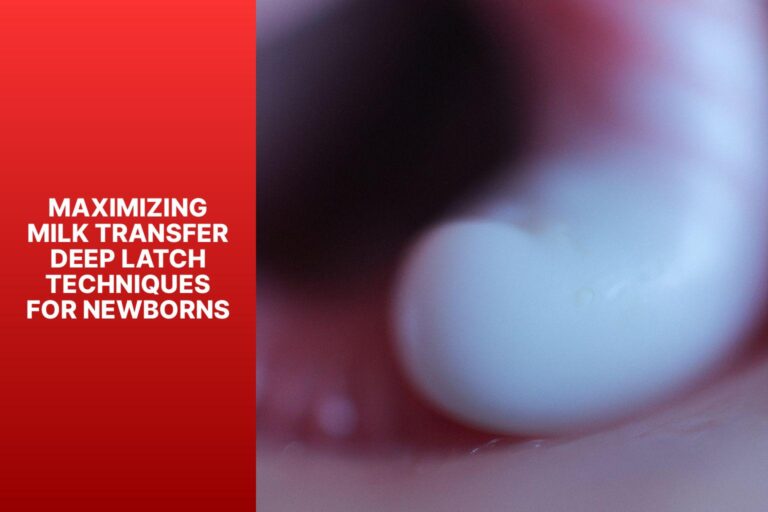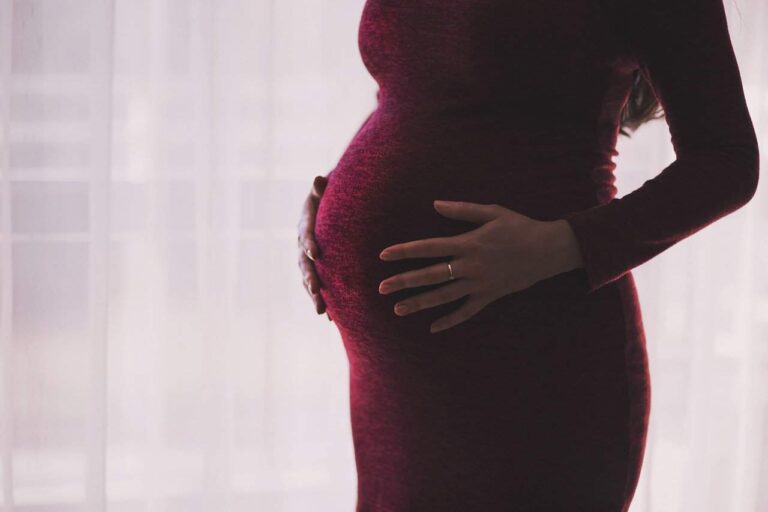Postpartum Period: Why Am I Spotting While Breastfeeding?
Pregnancy and childbirth work transformative changes within a mother’s body. The journey is marked by shifting hormone levels as mothers navigate the postpartum phase and transition into the world of nurturing and child-rearing.
A consensus among many mothers is the temporary disappearance of their menstrual cycles during this period. Once conception occurs, menstruation promptly ceases and only resumes after the baby is born into the world.
While the menstrual cycle can bring its own set of challenges – from cramps that bring tears to insatiable cravings and mood swings – numerous moms find themselves pondering when their monthly flow will make its return. Equally important, they seek to understand the subtle cues that might signal its imminent reappearance, including the phenomenon known as “spotting while breastfeeding.”
When Will My Period Come Back After Giving Birth?
The absence of periods while breastfeeding is called lactational amenorrhea. This happens to most mothers for the first six months of breastfeeding. The hormone prolactin, which helps the body produce breast milk, stops the ovaries from releasing new eggs from the ovary.
There is no standard time when your period will come back. Moms have different hormonal levels that can affect the return of their menstruation. Some moms can have their period right after birth, while others will go on for years without their monthly cycle.
Several factors can affect the likelihood of your period coming back, including:
- How often you breastfeed and/or bottle feed your baby
- How long is your baby’s bedtime
- Whether your baby needs supplements or not
- How your body reacts to hormones and how often it fluctuates
- Whether your baby is already eating solid food
So Why Am I Spotting While Breastfeeding?
Spotting and irregular menstruation are common for breastfeeding parents. These might be signs that your period is slowly coming back. This might happen to mothers slowly weaning their babies off breast milk.
However, you might want to visit your doctor if you are experiencing continuous spotting, heavy bleeding, or longer cycles. Your doctor might need to give you a check-up to see if the problem goes beyond breastfeeding. Only your doctor can tell you if your spotting is normal or not.
Your period during breastfeeding can vary compared to before your pregnancy. You might experience longer or shorter cycles. For some mothers, their periods will skip a couple of months before becoming consistent again.
Sooner or later, your period will return full force, even while breastfeeding. Some mothers might be concerned about whether it will affect their breast milk. So should you be worried about your period coming back?
Does My Period Affect My Breast Milk Supply?
Your period should have little effect on how much breast milk your produce. Some moms have reported a tiny drop in supply. But these drops in milk production should return to normal once your hormones become balanced again.
Your period might also cause a change in breast milk taste. During menstruation, chloride and sodium levels can temporarily increase while lactose levels go down.
This can make your breast milk taste saltier and sweat. Your baby might not want to latch and drink that milk. Fortunately, this change in taste goes away after your period.
The biggest change once your period comes back will not affect your breastfeeding, though. Instead, it has something to do with your fertility. You can now get pregnant again once you start menstruating!
While some moms might want another baby after pregnancy, many might prefer a break from having another child. This is a crucial time to consider your option for birth control.
Most barrier-type contraceptives, such as condoms, diaphragms, and spermicides, are safe for breastfeeding mothers. You may also consider an IUD instead.
Hormonal birth control might be harder to recommend since it requires a doctor’s visit. Some doctors might tell you to avoid them throughout your nursing period. Meanwhile, others might allow you once your baby is beyond six months. They might also prescribe you contraceptives without estrogen.
I Heard of Mothers Using Lactational Amenorrhea as Birth Control. Is It Effective?
Some breastfeeding mothers take advantage of their amenorrhea as birth control. The lactational amenorrhea method (LAM) is a technique mothers try during the first few months after childbirth. While it can be effective in some scenarios, it can only be pulled off under stringent circumstances.
Essentially, your baby must be below 6 months, and you are exclusively breastfeeding them and not using any form of pacifier or supplements. You feed your baby on demand day and night. And finally, you should not, under any circumstances, be menstruating.
If executed correctly, you will have a 2 percent chance of getting pregnant, comparable to using a barrier contraceptive. However, the risk of getting pregnant is always a possibility, especially if you have missed one of the requirements.
Emotional and Mental Well-being
Beyond the physical changes, pregnancy and childbirth can trigger emotional and mental shifts in mothers. Hormonal fluctuations, sleep disturbances, and the demands of motherhood might lead to mood swings, heightened anxiety, or even postpartum depression. It’s crucial for mothers to recognize these emotional changes and reach out for support when needed. Discussing the challenges tied to emotional well-being and emphasizing the significance of seeking assistance can provide valuable insights for readers.
Navigating Changes in Sexual Health and Intimacy
Pregnancy and childbirth can influence a woman’s sexual health and intimate relationships. Hormonal changes, physical discomfort, and body image concerns can impact a mother’s sexual desires and comfort. Providing guidance on effective communication with partners, initiating open discussions about postpartum intimacy, and addressing potential concerns can offer invaluable insights to readers facing similar experiences.
Pelvic Floor Wellness and Postpartum Exercise
Discussing the importance of pelvic floor health and postpartum exercise holds significance. Pregnancy and childbirth can weaken pelvic floor muscles, potentially leading to issues like urinary incontinence. Highlighting the benefits of pelvic floor exercises and offering guidance on safe postpartum exercise routines can empower mothers to prioritize their physical well-being.
Nutrition’s Role in Breastfeeding and Recovery
Nutrition’s pivotal role in postpartum recovery and breastfeeding should not be underestimated. Shedding light on the significance of maintaining a balanced diet to support both maternal health and milk production can be valuable. Offering tips on incorporating nutrient-rich foods, staying adequately hydrated, and managing dietary constraints can assist mothers in making informed nutritional choices.
Balancing Work and Breastfeeding
For mothers planning to balance work commitments with breastfeeding, addressing the challenges and strategies for managing breastfeeding and pumping in a professional environment can provide valuable insights. Delving into topics such as devising a pumping schedule, identifying suitable locations for pumping sessions, and advocating for workplace support can guide mothers as they transition through this phase.
Impact of Baby’s Development on Maternal Experience
While the article primarily focuses on maternal changes, it’s essential to explore how a baby’s developmental milestones can impact a mother’s body and routine. For example, the frequency of breastfeeding and the baby’s sleep patterns can influence hormonal levels and menstrual cycles. By considering this wider perspective, readers gain a more comprehensive understanding of the interconnectedness between maternal and infant experiences.
FAQ:
Can I use hormonal birth control while breastfeeding?
Hormonal birth control can be tricky and require your doctor’s opinion before taking them. You might have to take progestin-only pills to avoid negative side effects while breastfeeding.
Can I get pregnant while breastfeeding?
You are capable of pregnancy once you start menstruating, even if you are breastfeeding your baby. If you wish to not get pregnant, you can consider using birth control methods like wearing a condom or inserting an IUD.
My nipples are sore because of my period. How can I continue breastfeeding my baby?
Sore nipples can make it harder for you to nurse your baby, but it is still possible. You can ask for oral pain relievers from your doctor or use a pump to collect milk while your breasts are tender.
Conclusion
Many mothers experience the loss of their period during pregnancy and after childbirth. Many wonders when their period will come back. Some moms can get their period as early as a few weeks or months, while others wait for years.
Spotting while breastfeeding can happen to a few moms. It can be a sign of an incoming cycle. However, you might want to visit your doctor if the spotting is non-stop or very heavy.
Getting your period means you are fertile and can have another child. While some moms might spring to that opportunities, others might prefer to have a break and use contraceptives. And while pregnancy is exciting and all, you might want to take the time and focus on one kid at a time.










